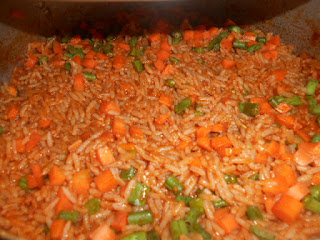Nigeria is Africa's most populous country, there are numerous
tribes and ethnic groups which wear their own style of
garb.Fashion in Nigeria has always been diverse. It depicts
the cultures and traditions of many ethnic groups and even
religion. Nigeria has over 300tribes which have their own
fashion culture. Ways of dressing in Nigeria changes from
tribe to tribe, which allows a variety of style to put on for
different events and places.
During the pre colonial era, Nigerians wore their traditional
attire to every event and at all times. In colonialism
Nigerians began to wear Western clothes, especially to
schools and those with government jobs. With time Nigerian
fashion began to reflect it's independent status through
their dressing. We were back to wearing our traditionally made outfits in urban areas, to work and even
church. The Legendary musician, Fela Kuti, in his song
"Gentleman" made fun of Nigerians, who rejected the
cultural way of dressing and had inferiority complexes
about their non-western cultures and lost thier roots,
acting as though they were better than everyone else. Late
in the 90's Nigerians dressed in a traditional outfit to
work or foreign countries would fall out of place, but
today it is fairly uncommon for Nigerians to wear Western
suits/clothes to work or any occasion.
The top three ethnic groups in Nigeria are the
Hausa/Fulani(the largest ethnic group), Yoruba and Igbo.
For the Hausa/Fulani men, they wear a wide sleeved
robe called "babban riga" which is a floor-length robe with
very long sleeves which have to be folded up to expose the
hands, it's the the equivalent of the Yoruba's "agbada".
The women wear colorful wrappers-"abaya" with matching
blouses and bread accessories around the neck, the wrists
and on their heads.
The Igbo traditional wears are designed to display their
modest culture. The women wear wrappers some of which are
designed for casual events and for formal events wear
expensive clothes often imported. The men usually wear
cotton wrappers, shirts, sandals as casual wear and better
material wrappers for formal events. They. wear caps and
heavy beads and sometimes carry a walking stick.
The Yoruba's are known for their exquisite clothing and are
a very stylish people and very conscious of their looks .
Their traditional attire indicates status and wealth. They
can sometimes be too dressed for an event. Examples of
their traditional attire are;
- Gele - This is a traditional Nigerian cloth which women wrap around their heads. There are many variations of how they wrap it.
- Agbada - For formal events Nigerian men often wear a robe called an agbada over their clothes.
- Buba - A Buba is a loose fitting blouse with long sleeves and a neckline that is either V-shaped or round. It usually falls a little below a women’s waist. Men can also wear a buba.
- Iro - Iros are long wrap-around skirts. The rectangular skirt is worn by wrapping it around the waste and tucking it in at the end.
- S(h)okotos - Sokotos are trousers that are loose-fitting with a drawstring used to hold them up.
Today theses traditional attire have been transformed into
modern looks and have become trends and styles that
everyone irrespective of which ethnic groups' attire wants
to wear them. Local made fabrics like
ankara,lace,aso-ebi,aso-oke,gele,adire and so on have been
embraced by all within Nigeria, Africa and Western
countries. These fabrics come in different styles that can
be worn for formal and casual events.
Thanks to Nigerian fashion designers, Nigerian fashion
publications like—StyleHouseFiles.com, Genevieve, Thisday
Style, Bellanaija.com etc and style enthusiasts, fashion in
Nigeria has received wide acceptance and recognition from
the international world. These designers understand that
Nigeria fashion is an integral part of the people of
Nigeria, most of them opt only to use Nigerian made fabrics
for their designs. They make use of African inspired
fabrics to promote the beauty of our cultural way of
dressing. Which is very attractive to the Western world.
Apart from Indian people and a few other nations, Nigerians
are the only people that have styles that depict their
tribe.
These designers make clothes in modern styles acceptable in
the Western world as the general trend of fashion for
people of all shapes and sizes and compel you to dress in
the local fabric.
For some they pay homage to heritage and design philosophy
of fusing cultures from a contemporary perspective, thereby
creating a collection of Afropolitan pieces. From their
choice of fabrics ton designs they tell cultural related
stories. These designers are here to stay and blaze a trail
in the fashion industry in Nigeria and globally.
The fashion industry in Nigeria is a fast rising one, it is
very competitive just like any other business and this
makes working in the industry healthy and interesting for
those with passion for fashion. The fashion industry faces
alot of challenges ;mediocrity, lack of adequate
electricity supply, quality clothes, and so on. Nigerian
fashion designers are still at the follower stage in terms
of creativity. Where just because the English design is
nice and trending they repeat it in ankara or copy a part
of some top designers idea. Most people aren't doing it out
of passion but because everyone is creating a fashion line
they feel they should too. Also some Nigerian fashion
designers aren't ready for global competition because they
are engaged in made-to-measure while foreign designers
concentrate on ready-to-wear. They also have problems with
finishing and lack of originality.
The fashion industry needs support from the government, to
make a fashion sector in the economy just like they do with
energy, power and agriculture. This will encourage people
to buy Nigerian!
Fashion in Nigeria today hasn't just provided various
stylish looks but has unified Nigerians and has been
used to preserve and promote culture.

























